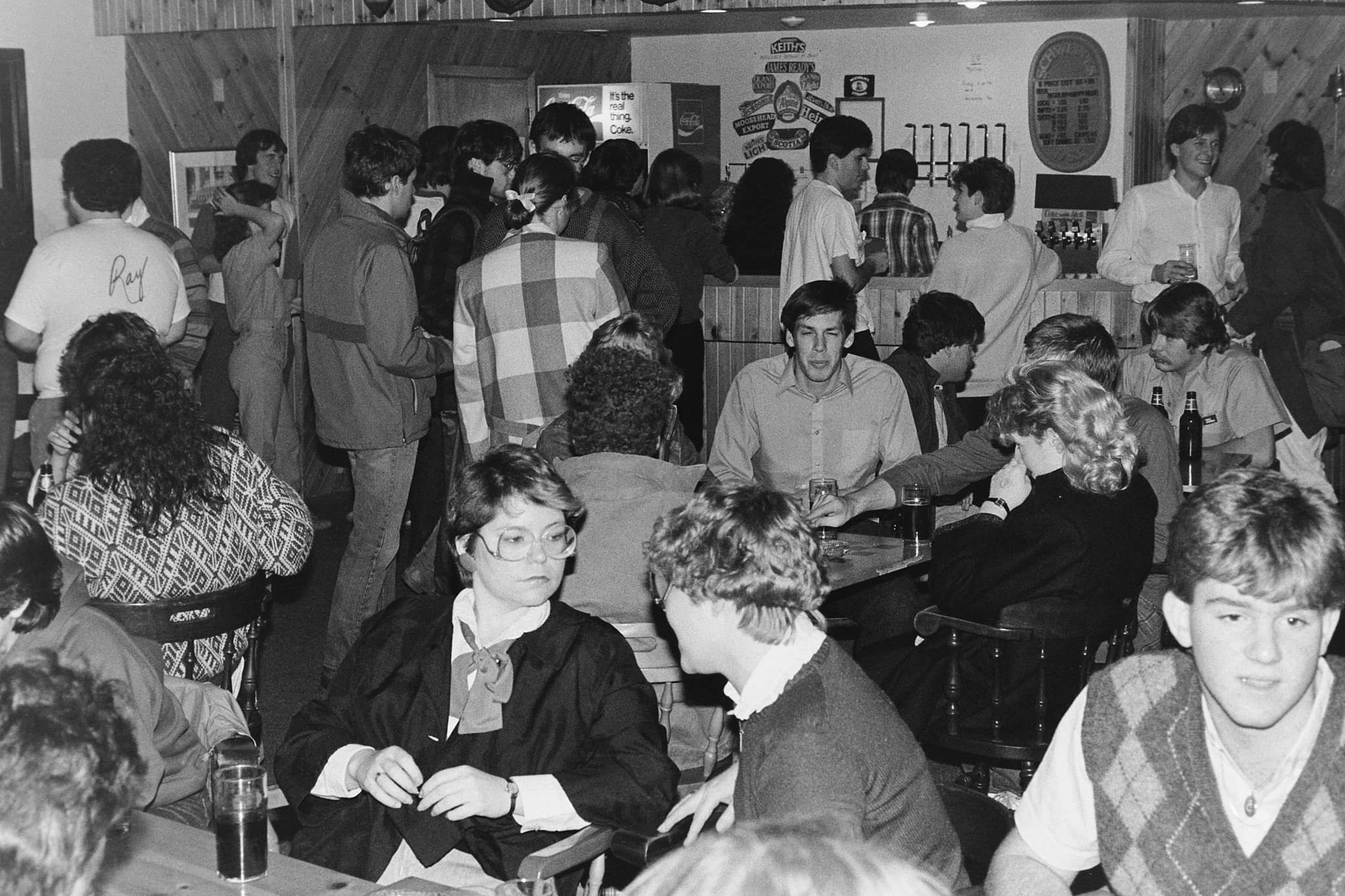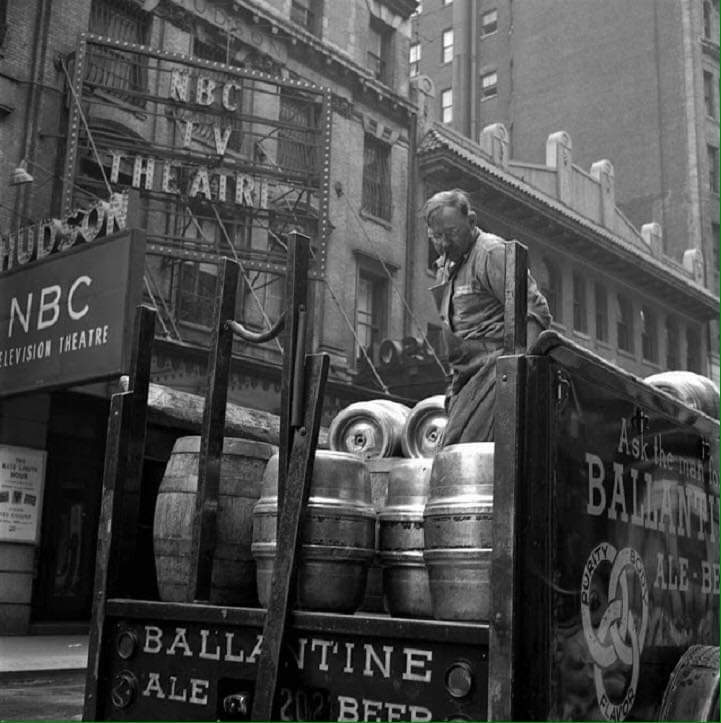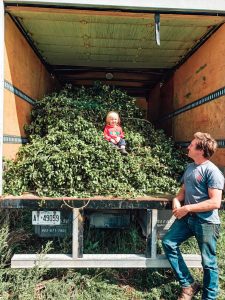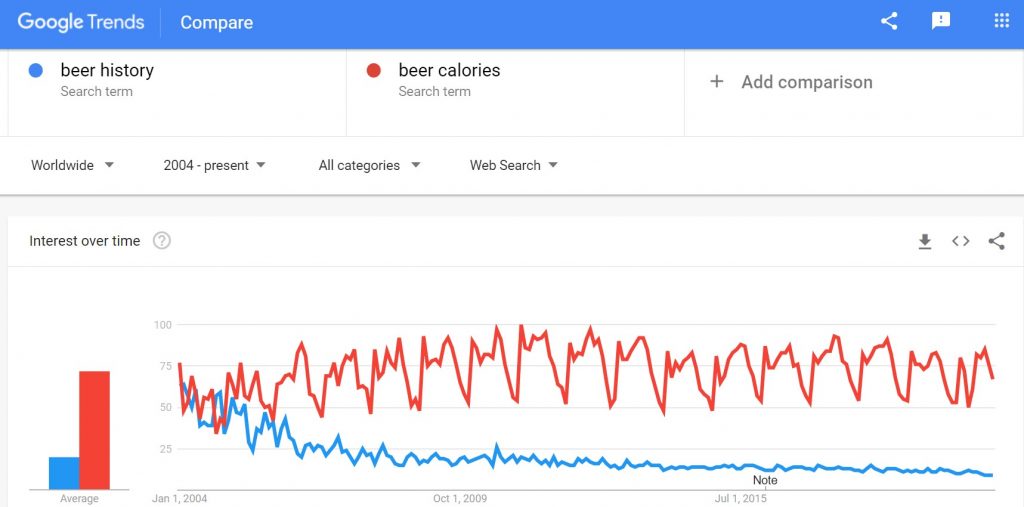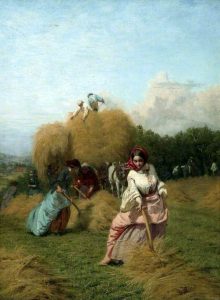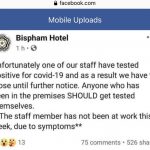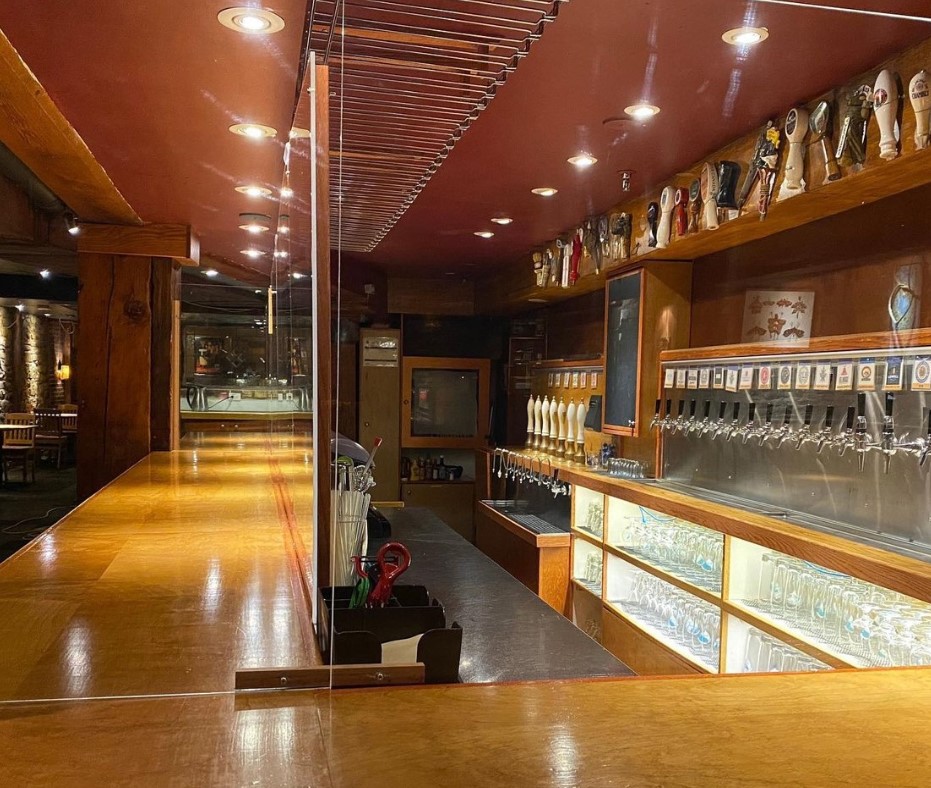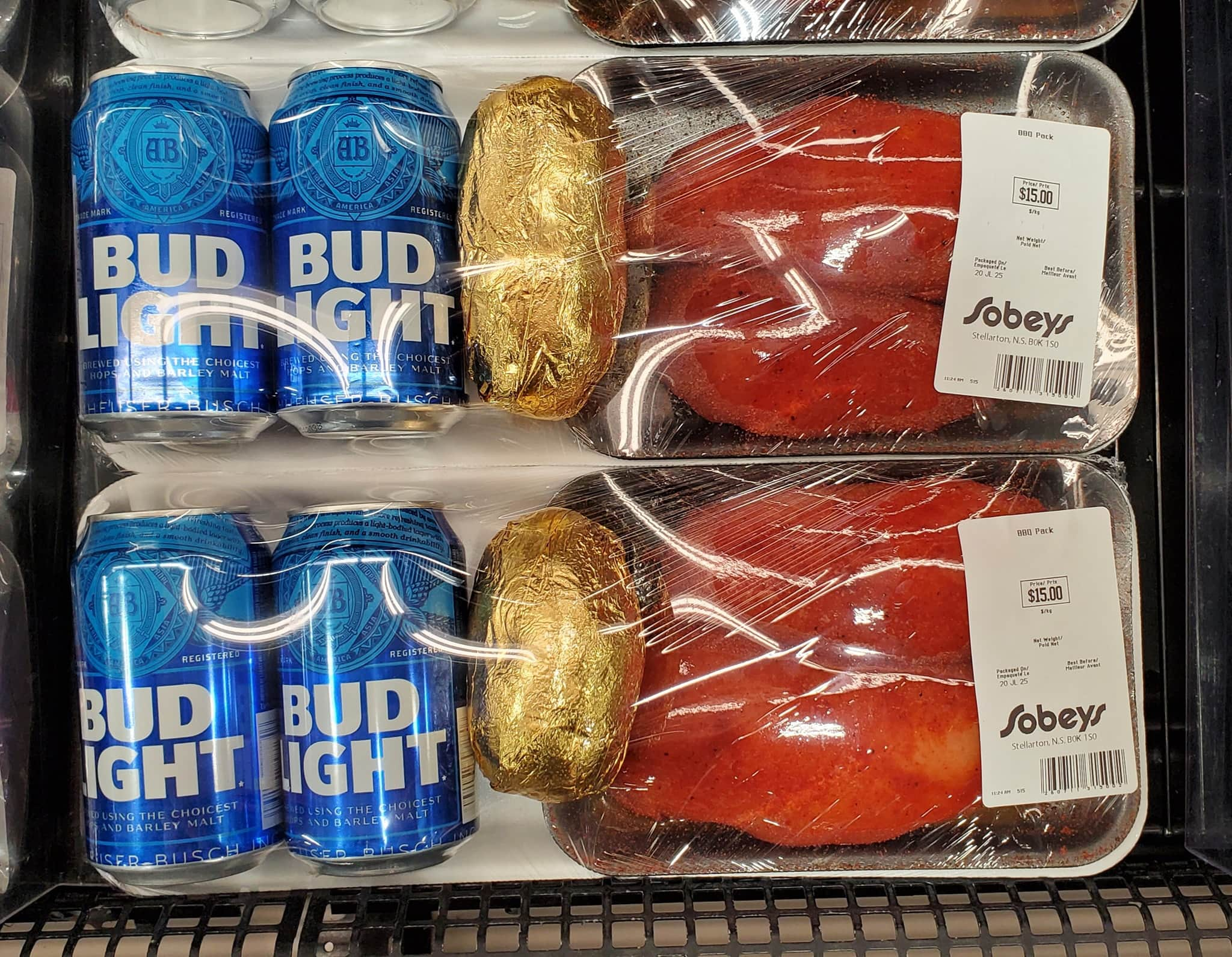Records. I have been known to hate records. But up there? That’s my undergrad bar in the fall of 1985 by best guess-timate. The image popped up on the ’80s alumni FB page by a classmate. I’m not in the picture but I can name half of those who are in there. Packed. Happy. I’ve been trying to sift clues to gleaned within the photo and the others that accompanied it. LL Bean boots were a thing. And I think a beer was $1.10 during Happy Hour according to the posted price list. We only had 200 in residence at the place and most of the marriages amongst we wee Blue Devils started off during Friday Happy Hour. We even had a song. OK, I did. You just sang It’s Happy Hour Time! over and over to “Ta-ra-ra Boom-de-ay” which was easy to remember. Duh. Two thirds of my life ago. Note: McEwans Strong. Apparently an 8% treacle based syrup. Had too much of that too often. Ephemera. But very important for some reason.
 From within a similar ballpark, ATJ shared an image from just eight years later, the agenda for a conference on the state of IPA in 1994:
From within a similar ballpark, ATJ shared an image from just eight years later, the agenda for a conference on the state of IPA in 1994:
Rooting about in the attic where there are hundreds of books, magazines and beer pix and press releases going back to the 1990s I came upon this @Britbeerwriters agenda for their IPA conference – a little bit of history perhaps? Only drunk beer then, beer writing was 2 years away.
Much comment ensued. And more images of the detritus of that day have been located. I was quite interested in who spoke, including four PhDs… or podiatrists… plus Jackson and Protz and Oliver. Heavens. Beats the hell out of a Zoom-cast with influencers.
And last Friday, I listened to Andy Crouch’s interview on BeerEdge with Dr. Theresa McCulla, curator of brewing history at the National Museum of American History. I really liked it. Good production quality for one thing. No umms. No scoffs or chortles. In terms of substance, I mentioned this:
Having written and researched 1600-1830 brewing history, I’m not sure I fully agree with that given the wide range and the depth of the US records that are available. But they are ephemera, from shocking slave sale notices to banal self praising poetry about brewerys owners… My main takeaway from your excellent discussion was the hope that the same primary transitory records are preserved along with objects. Email data bases and boxes of invoices are as interesting as oral histories from decades after the fact – and perhaps a wee bit more factual.
Which is exactly the point of scrap of paper ATJ found. Just a scrap of paper. And the photos. Not a spoon. I don’t get the spoon thing at all, frankly. There is a difference between symbols and records. Records matter more. So brewers, get those early emails and photocopies onto a disk or a stick or some other thingie and get it to some archive somewhere.
 In other news, the shut down hours inspectors are out in England. The comments section in last week‘s noted post at The Pub Curmudgeon offered up this observation on one aspect of the new… rather, latest rules:
In other news, the shut down hours inspectors are out in England. The comments section in last week‘s noted post at The Pub Curmudgeon offered up this observation on one aspect of the new… rather, latest rules:
It’s table service only. This will be a real pain with only one member of staff, and we can’t afford to have two on at once. If there is anyone with Coronavirus, table service will help spread it through cross contamination. Instead of people coming to the bar – where we have a screen – one at a time then going back to their table, I will be going from table to table constantly taking orders, ferrying drinks and taking payments. Those pubs who have put in ingenious one way systems with collection points and screens because that’s what their risk assessment concluded was safest will have to re-think and implement a new system. In two days.
Conversely, The Sun newspaper-like object has found the one workaround at a highway stop:
…it is classed as providing an essential service because it provides food and drink to motorway drivers. The exemption means the pub — the only one at a services in the country — is not bound by the curfew and can serve between 10pm and 5am. But it is open only until 11pm — although that is still an hour longer than other boozers. Nobody from the Extra Motorway Services group was available for comment last night.
Also about wandering the roads, Boak and Bailey reached back into the letters of a Romantic poet and found out he was “Samuel Taylor Coleridge, beer geek and pub crawler“:
In Llangynog, Wales, in July 1794, he had lunch at the village inn, enjoying ‘hashed mutton, cucumber, bread and cheese and beer, and had two pots of ale – the sum total of the expense being sixteen pence for both of us!’ Note the distinction between beer and ale, there. In 1801, he briefly became obsessed with the idea of making productive use of acorns…
Time passed, and nineteen years later I found myself once again changing trains in Cambridge. I still had my notes from last time, too. Finally I was standing in front of the Free Press. Expecting to be disappointed, I took a deep breath and opened the door. I was not disappointed.
In beer writing critique, Ed posted like it was 2008 when he posted a post about someone else’s post:
…at the end, to sound a little crass, I couldn’t help but think so what? Beer might be described as hyperreal or a simulacra but if I’ve got a pint in my hand why should I care? Postmodernism might by sceptical towards reason but my reason tells me to be sceptical towards postmodernism.
I thought the post was entertaining, a bit of a romp. My only other comment was similar but hopefully positive: “What isn’t simulacra in craft culture?” Perhaps somewhat related, another beer blog – Look At Brew out of Sussex, England – has declared that it’s time to stop:
I’ve been blogging as Look at Brew on and off for the past eight years or so, mostly focusing on the UK beer scene, a scene which has become an incredible beast. Sometimes that beast is something I want to be around, research and interact with, other times it’s something which I don’t recognise. It has changed beyond what I thought it would in such an incredibly short time.
Many have come and gone. Beer writing has always been a tough gig. Start with limited resources, search hard for a point and/or status – then wash it all down with a lacing or lashings of a generally socially mood altering drug which comes with its own gaps in understanding of the long term consequences. Then add the criticism. Hard on the head if we are looking at our writing as the end of a discussion rather than the beginning. And like many weeks, logging this stuff week after week seems even pointless sometimes…
But that, I think, misses the point. The logging creates an aggregation that displays a pattern. Last Saturday I woke up in the middle of the night and I was thinking about Blursday. Here we are. On the one hand we’ve made it six months in – with about another six until we know what is up with the vaccine roll out. On the other, it is a Blursday. Day after day of the same. If you are as lucky as me. The boring same is pretty good. Other have not been… what… as immune. The million plus dead worldwide. The millions more now ill without any understanding of the long term consequences. And even millions more hammered economically. Makes beer blogging seem insignificant.
And you know all that already. Because we are all in this Blursday together. Sure – it’s like everyone has the same haircut… or all jam came in one flavour. So, like you I am having a difficult time determining if beer has gotten extra boring or if it is just that a receding tide lowers all boats or if my get up and go got up and went. But then I realize that it’s just Blursday and that better things are coming. Imagine the fun of vaccine day. It’s going to be a happy happy hour. I am almost… perhaps… excited by the idea of looking back at all this, all these weekly news notes posts, once Roaring Twenties V.2.0 starts up in 2021. Which is why I guess I write this. To create a record.
With that glimpse of possible cheer in the late short term, early mid-range… that is it! Enjoy yourself while you are in the pink… and remember there’s Boak and Bailey mostly every Saturday, plus more at the OCBG Podcast on Tuesdays (where Jordan shits on the decline of Fullers rep in Ontario but then celebrates the likely return by other means) and sometimes on a Friday posts at The Fizz as well. And sign up for Katie’s weekly newsletter, The Gulp, too. Plus the venerable Full Pint podcast. And Fermentation Radio with Emma Inch. There’s the AfroBeerChick podcast as well! And have a look at Brewsround‘s take on the beer writing of the week. Not to mention Cabin Fever. And Ben has finally gone all 2009 and joined in with his own podcast, Beer and Badword (where this week a bigger bum to behold on a brand is discussed. And remember BeerEdge, too.

